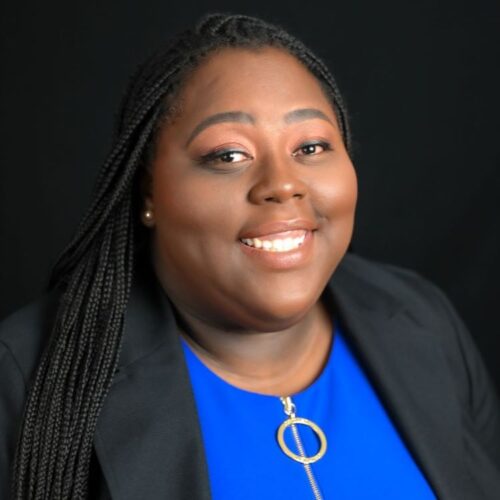Director of new SPLC Georgia state office ‘there to listen,’ forge bonds
Share
Explore Our Galleries
Breaking News!
Today's news and culture by Black and other reporters in the Black and mainstream media.
Ways to Support ABHM?
By Esther Schrader, SPLC

The town of Sandersville sits near the center of Georgia, its rolling hills home to vast ancient deposits of the soft, white powder called kaolin. It is also the hometown of another local find, Yterenickia Bell, who in May launched the new Georgia state office of the Southern Poverty Law Center.
While born of the chalky hills, Bell, like her grandparents who raised her, is made of firmer stuff.
“My grandma told me that if I saw injustice or felt like something was wrong, then I should use my voice and say something,” said Bell, who at just 35 has blazed a trail of social justice achievements that brought her to the attention of the SPLC. “She told me, you got one mouth and two ears for a reason. Listen to people, hear people, be passionate about people.”
In Georgia, where poverty is saturated throughout the historically neglected southwestern and southeastern areas of the state known as the Black Belt, that voice is deeply needed. It is in those regions – along with the western edge of Atlanta, where prominent Black institutions took root – that the SPLC hopes to make its mark.
As one of a vanguard of young leaders steeped in the intersectionality of the racial justice movement today, Bell will play a key role in that pursuit.
“We are at a pivotal moment for the Civil Rights Movement,” SPLC President and CEO Margaret Huang said in explaining why she chose Bell to lead the new effort in Georgia. “The extraordinary leaders in the 1950s and 1960s created a movement that really transformed the entire country. And we continue to celebrate those leaders. But today the challenges are different.
The original article details those challenges.
The SPLC is one of several organizations fighting for racial equality.









Comments Are Welcome
Note: We moderate submissions in order to create a space for meaningful dialogue, a space where museum visitors – adults and youth –– can exchange informed, thoughtful, and relevant comments that add value to our exhibits.
Racial slurs, personal attacks, obscenity, profanity, and SHOUTING do not meet the above standard. Such comments are posted in the exhibit Hateful Speech. Commercial promotions, impersonations, and incoherent comments likewise fail to meet our goals, so will not be posted. Submissions longer than 120 words will be shortened.
See our full Comments Policy here.